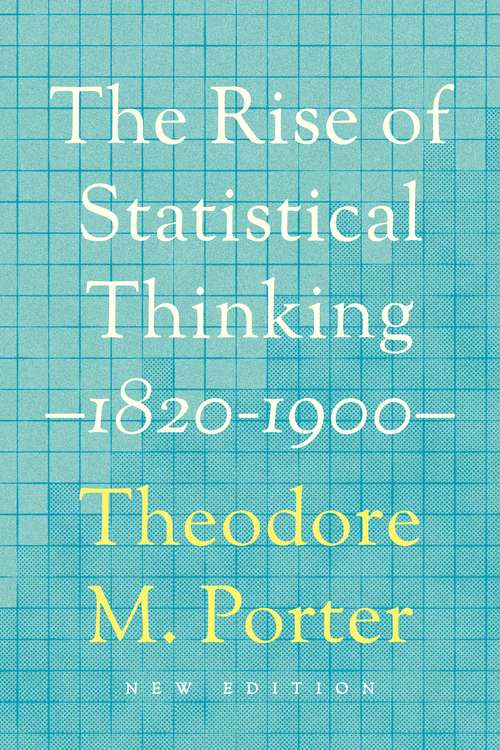The Rise of Statistical Thinking, 1820–1900
By:
Sign Up Now!
Already a Member? Log In
You must be logged into Bookshare to access this title.
Learn about membership options,
or view our freely available titles.
- Synopsis
- An essential work on the origins of statisticsThe Rise of Statistical Thinking, 1820–1900 explores the history of statistics from the field's origins in the nineteenth century through to the factors that produced the burst of modern statistical innovation in the early twentieth century. Theodore Porter shows that statistics was not developed by mathematicians and then applied to the sciences and social sciences. Rather, the field came into being through the efforts of social scientists, who saw a need for statistical tools in their examination of society. Pioneering statistical physicists and biologists James Clerk Maxwell, Ludwig Boltzmann, and Francis Galton introduced statistical models to the sciences by pointing to analogies between their disciplines and the social sciences. A new preface by the author looks at how the book has remained relevant since its initial publication, and considers the current place of statistics in scientific research.
- Copyright:
- 1986
Book Details
- Book Quality:
- Publisher Quality
- Book Size:
- 360 Pages
- ISBN-13:
- 9780691210520
- Related ISBNs:
- 9780691208428
- Publisher:
- Princeton University Press
- Date of Addition:
- 09/17/20
- Copyrighted By:
- Princeton University Press
- Adult content:
- No
- Language:
- English
- Has Image Descriptions:
- No
- Categories:
- History, Nonfiction, Science, Mathematics and Statistics, Philosophy
- Submitted By:
- Bookshare Staff
- Usage Restrictions:
- This is a copyrighted book.
Reviews
Other Books
- by Theodore M. Porter
- in History
- in Nonfiction
- in Science
- in Mathematics and Statistics
- in Philosophy
